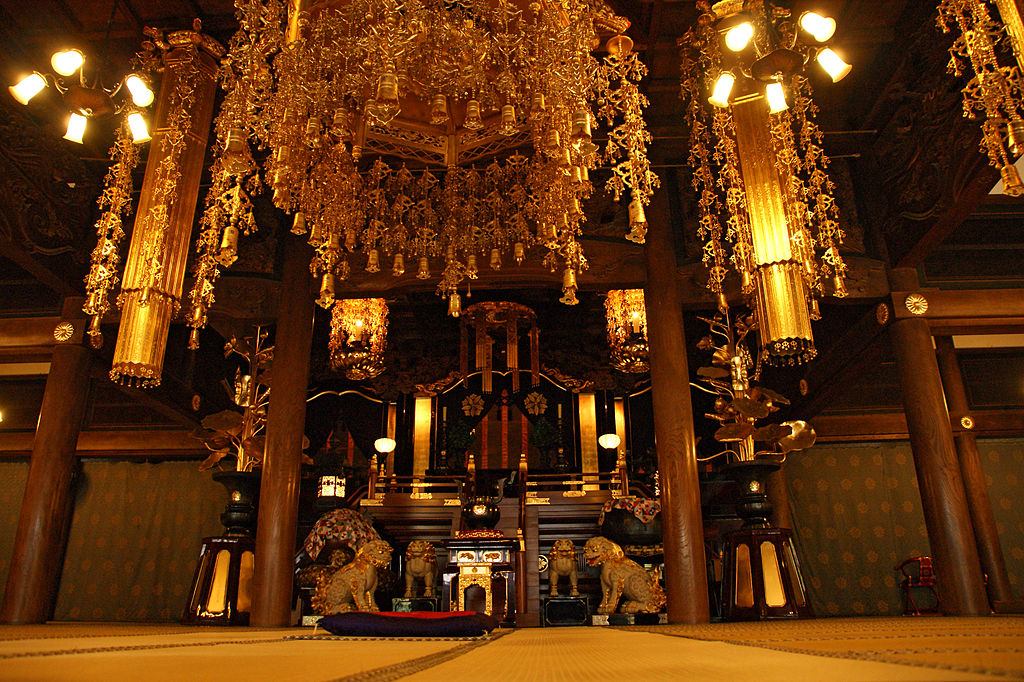The fourth section of Genjokoan ends with the following:
“Those who greatly realize delusion are buddhas. Those who are greatly deluded in realization are living beings. Furthermore, there are those who attain realization beyond realization and those who are deluded within delusion.”
“Those who greatly realize delusion are buddhas.”
Note that, when applied to delusion, the word “realise” means to recognise, to be aware of, our delusion. Okumura writes: “If we are truly honest and sincere with ourselves, we will find that no matter how hard we practice, our motivation for practice is still based in some amount of self-centeredness. Dogen said that those who recognize this self-centered basis of their practice are buddhas. This means that the act of truly seeing our self-centeredness is itself Buddha, and when we see this self-centeredness we must bring repentance … Our practice, the awakening that allows us to see our own self-centeredness and let go of it, is Buddha.”
Repentance in Buddhism does not bring up the notion of sin as it does in Christianity. It is included in Jukai, during which new practitioners take refuge in the Buddha Dharma. It is also a regular practice for monks, taking place on days of the full and new moon.
“Those who are greatly deluded in realization are living beings.”
Even though, from the standpoint of ultimate truth “buddhas and living beings are not two separate groups of people,” at the same time, as we live our everyday lives, we are still self-centered and we separate them in our minds. While this dual-presentation of reality can be puzzling at times, we should be grateful for it, as it is our great gift as Buddhist practitioners. It allows us to see that “the desire to rid ourselves of self-centeredness and live in accordance with reality gives us the energy to practice zazen and study Buddha Dharma. So in a sense, our delusions, our view that we are separate from universal reality and our desire to change, is very important because it is a motivating force in our lives that enables us to practice.”
Now, in zazen, “we let go of our ego-centered selves and become one with the total interpenetrating reality that is universal reality, or absolute reality.” However, “even though when we let go of our relative, self-centered way of viewing things, we are naturally a part of absolute reality, we cannot ‘see’ this absolute reality as an object of our discriminating minds.” Why? “We cannot be an observer of absolute reality because we ourselves are part of the total movement of that reality. In the same way that a person cannot step outside of his or her own body and observe the body with a separate set of eyes, we cannot step outside of ourselves and observe absolute reality. In fact, “when buddhas are truly buddhas they don’t need to perceive they are buddhas; however, they are enlightened buddhas and they continue actualizing buddha.” But, “because it includes everything, this absolute reality does not exclude our relative views and discriminating minds, including our deluded relative views. We hold a certain position within absolute reality as a karmic self, a limited, individual self that is born, lives, and dies according to changing causes and conditions.”
This is what Dogen refers to as being “deluded within realisation.”
“We are deluded within realization, and in practice we realize, or awaken to, the reality that we are deluded; we are therefore not deceived by our delusion.” This can be done because “the “subject” that practices Dharma is not this individual karmic self, it is not the “I”; it is rather universal reality that is itself practicing and manifesting reality.” Okumura again stresses that “this shift in the “subject” of practice from the individual to universal reality is essential to Dogen Zenji’s teaching in Genjokoan.”
“Furthermore, there are those who attain realization beyond realization”
“There are some people who realize reality within practice and go beyond.” Here Okumura quotes another chapter of the Shobogenzo – Daigo (Great Realization), where Dogen writes: “No sentient or insentient beings are without knowledge from the time of birth. When there is innate knowledge, there is innate realization, innate verification, and innate practice. Thus, the buddha-ancestors, being already the good trainers of beings, have been respectfully considered as ‘[the men of] innate realization.’ This is because they are born holding realization. They are people with innate realization being filled with great realization.”
Okumura explains: “Here Dogen says that all beings are born within the network of interdependent origination that is itself great realization, that is itself prajna.” In Shobogenzo Uji, Dogen writes that “dependent origination ‘is’ activity.” “Our practice is to realize great realization within this great realization, moment by moment; or perhaps it is better to say that great realization realizes great realization through our practice.”
“… and those who are deluded within delusion.”
Dogen writes: “People nowadays rarely seek genuine reality. Therefore, though they are deficient in practice with their bodies and deficient in realization with their minds, they seek the praise of others, wanting others to say that their practice and their understanding are equal. This is exactly what is called delusion within delusion. You should immediately abandon such mistaken thinking.”
Source:
Shohaku Okumura – Realizing Genjokoan

